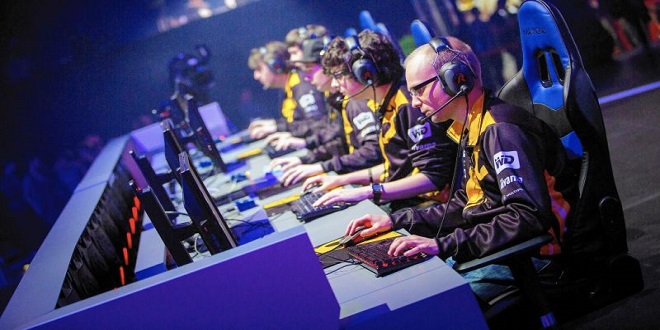Should Esports be Considered Sports

Esports and sports have been compared to one another on numerous occasions. Even so, many scholars, coaches, and players themselves have debated this topic for decades. Esports and athletics appear to be different in many ways, but also share similarities. There has been much discourse on the topic over the last couple of years as well. Whether esports should be considered sports has been a hot topic in recent years. While some people believe that esports are not sports because they’re video games and lack physicality, others think it’s unfair to exclude one from being considered a sport simply because it’s digital.
What is Sports?
There are many definitions of what sports are. The most common one is that sports are competitive physical activities that are governed by rules, have an objective, and result in a winner-loser binary outcome. In this sense, esports do not meet these requirements.
Another definition is that sports are activities involving physical exertion and skill. In this sense, esports do meet the criteria.
The third definition of sports refers to spectacle, especially when it’s on television. Both esports and physical sports fit this description.
There is yet another definition that says that sports are social institutions with economic, political, and ideological functions. This definition is less about the actual activities and more about the context in which they exist.
This definition is useful because it highlights the fact that sports are embedded in society and culture in ways that aren’t always obvious to those who participate in them or watch them as entertainment.
What is Esports?
The International Olympic Committee (IOC) defines esports as “electronic sports” and “competitive gaming”. In this sense, esports are video games played competitively.
In order to be considered a sport by most people, esports would need to meet the criteria of a sport as described in any of the above definitions.
Many people who are opposed to the idea of esports being recognized as a sport point to the fact that esports involve video games. Therefore, they argue, esports aren’t sports because they don’t involve physical exertion and skill.
In this sense, esports are more like video games than sports.
However, there are many sports that involve digital elements like virtual reality training simulations and computer-generated statistics for teams and players. While these are different from playing video games, they are also very much in the realm of digital and virtual technologies.
One way of thinking about this controversy is to ask if esports should be treated like sports when determining how they should be governed or organized. If the answer is yes, then the next question is how esports should be defined. In other words, what is esports and how is it different from other sports?
Why are People Confused About Whether Esports are Sports?
It’s important to note that there is no confusion within the sporting world about esports being a sport. All sporting organizations that are part of the Olympic family, for example, acknowledge esports as a sport.
The confusion within the general public is due to a lack of knowledge about the details of esports and sports. Many people don’t understand the subtle differences between these activities and as a result are confused about whether esports are sports.
Other people who are confused about esports and sports are probably resistant to change or are perhaps just stubborn. They might feel that esports don’t belong in the sports world and want to keep the two as separate as possible, even though the reality is that they already share many things in common. On this website this article articulates the difference.
Are Esports a Sport or not?
This is a difficult question to answer. Esports is new, and there are no established criteria for what makes an activity a sport. The IOC and other sporting bodies have not yet established criteria for what qualifies as a sport.
There are even discussions within the sporting world about whether esports should be considered a sport because of the lack of established criteria for what a sport is.
There are also experts who argue that esports are not sports because they are too focused on strategy and mental skills rather than physical skills.
Many people who argue that esports isn’t sports have a specific definition of sports in mind that esports don’t meet.
Given the lack of agreed-upon criteria for what makes something a sport, the best that can be done is to make an argument for why esports are sports based on their similarities to other activities that are already considered sports.
Should We Stop Calling it “Esports”?
Some people argue that esports should be called sports but that they should be re-classified as football, or some other sport, instead.
This is an absurd idea because it’s based on a misunderstanding of what a sport is. In this sense, those who argue for this are confusing the definition of a sport with the fact that esports is digital.
The best solution to the controversy over whether esports are sports is to expand the existing definition of a sport to include competitive video gaming.
Esports are sports because they are competitive, involve skill and physical exertion, are governed by rules, have an objective (winning), and result in a winner-loser binary outcome.
Conclusion
What we call esports doesn’t matter. What matters is that esports is a sport, and it should be treated as such.
This is a growing industry that is estimated to generate $2.85 billion in annual revenue by 2020. The esports industry is also global, with players and fans from all over the world. Given the scale and significance of esports, it’s only a matter of time before they are recognized as a legitimate sport. For esports fanatics, Parimatch is the ultimate sporting and betting site.




